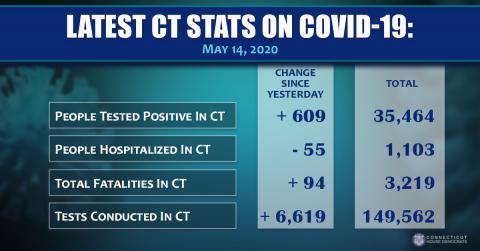State Capitol Update Week of 5/25

One of the by-products of the pandemic is anxiety. Whether related to health concerns, economic concerns, or a combination of the two, much of it is due to the fact that so much is beyond our individual control. Some who have applied for unemployment have still not seen payment despite having done exactly what the state instructed them to do. Others with loved ones in nursing homes can’t visit and are left feeling helpless in overseeing their care. There is a lot of forward progress as the state begins to re-open but sometimes we don’t see it so it doesn’t seem real.
For me personally that lack of ability to protect those I love goes beyond the coronavirus this week and is playing out in Minneapolis, where we watch a community convulsed with anger and grief in response to the killing of George Floyd by a police officer. My daughter lives in Minneapolis, and she and her friends have participated in peaceful protests there. I’m proud of her because she’s willing to take a risk to stand up for her principles, but as her mother, I’m a little fearful. And my fear is small when laid against those of other families, who have dealt with these fears for generations. My heart is with all of them.
There are some simple things that we do control. We can do our best to protect ourselves by taking precautions like washing our hands, keeping physical distance and wearing masks in public (both to protect others and to show our neighbors and friends that we care about their health and are willing to make this small sacrifice). If we are not vulnerable because of a health condition or age, we can support our local businesses by shopping and patronizing local restaurants. We need those businesses to recover, and they need us: it also feels good to be able to do something for others, no matter what it is.
One of the things that helps a lot of us in the Northwest corner is growing things: planting them, caring for them, breathing in their scent. I thought I'd close with a few gardening quotes care of Barbara Prindle and the National Grange’s View from the Hill.
- The glory of gardening: hands in the dirt, head in the sun, heart with nature. To nurture a garden is to feed not just the body but the soul. ~ Alfred Austin
- Remember that children, marriages and flower gardens reflect the kind of care they get. ~ M. Jackson Brown Jr.
- A weed is a plant that has mastered every survival skill except for learning how to grow in rows. ~ Doug Larson
- Digging potatoes is always an adventure, somewhat like fishing. There is forever the possibility that the next cast – or the next thrust of the digging fork – will turn up a clunker. ~ Jerome Belanger
- Everything that slows us down and forces patience, everything that sets us back in the slow circles of nature, is a help. Gardening is an instrument of grace. ~ May Sarton
- It is difficult to think anything but pleasant thoughts while eating a homegrown tomato. ~ Lewis Grizzard
Here’s a list of today’s topics:
- New Guidelines for places of worship
- Help for those who have lost (or are about to lose) their health insurance
- Reopen Connecticut Advisory Group’s community committee holds roundtable on vulnerable populations
- Update on reopening state colleges and universities
- Reporting Cyber Crime
- SBA Rural Development Business & Industry Webinar
New Guidelines for places of worship
Today Governor Lamont announced new guidelines for places of worship, expanding the number of people that may gather, including:
- Up to 25% of capacity, or up to 100 people, whichever is fewer;
- For outdoor worship, up to 150 people, with social distancing in place.
Help for those who have lost (or are about to lose) their health insurance
In response to the unprecedentedly high unemployment rate, Office of the Healthcare Advocate (OHA) has created materials intended to help Connecticut individuals and families who have lost (or are about to lose) their health insurance.
The information is now live on their website.
You can also access free, expert assistance and advice from OHA at any time, using their helpline at 866-466-4446 or email at healthcare.advocate@ct.gov
Reopen Connecticut Advisory Group’s community committee holds roundtable on vulnerable populations
The Reopen Connecticut Advisory Group’s community committee held a roundtable discussion regarding the impact of COVID-19 on the state’s most vulnerable populations. Members of the public had an opportunity to provide questions to the panel and have them answered during the event.
The full video of the roundtable can be watched online on Governor Lamont’s YouTube channel.
Update on reopening state colleges and universities
Mark Ojakian, President of Connecticut State Colleges and Universities (CSCU) announced a plan to return to state college and university campuses in fall 2020 with significant measures in place to make these institutions as safe as possible.
Based on significant guidance from public health experts and in accordance with Governor Lamont’s ReOpen CT Advisory Committee plan, they have determined that CSCU will reopen their physical campuses to residential and commuter students for fall 2020 with the following protocols in place:
- The four universities can start bringing residential and commuter students to their campuses on Monday, August 24. Classes will follow the common calendar through Thanksgiving, with the balance of the semester and exams online. Arrangements for residential students to move in are still to be determined.
- The 12 community colleges are permitted to offer on ground courses beginning June 1 for those spring semester students who need to complete programs and for new students to enroll in workforce development programs. This summer reopening is allowed under phase 1b of ReOpen CT for Higher Education. Like the universities, community colleges may bring students back for the fall semester on August 24 and courses will follow the common calendar.
- Charter Oak State College will continue to offer its catalog of online classes through summer and fall.
- Plans for the reopening of the campuses for faculty and staff will be developed this summer. Plans for reopening the CSCU system office and Charter Oak State College are being established as well.
- Classes at the colleges and universities will be delivered in a variety of on ground, online, remote, hybrid and flexible course design models.
- The community colleges and universities will be prepared to pivot to offer fully remote courses and services if public health conditions warrant.
Before physical campuses are opened for the next academic year, each campus must write a plan that meets all standards outlined in theReOpen CT Higher Education phase three framework as well as incorporating recommendations from the CSCU Steering Committees. Updates will also be posted soon on the www.ct.edu website along with other ReOpen CT and CSCU planning documents for your information.
Reporting Cyber Crime
Sadly, there have been many reported incidences of online scams seeking to take advantage of the pandemic to commit fraud or other crimes. Should you be targeted, or receive something you believe to be an example of online fraud, you should report this to the relevant state agencies, particularly the Connecticut Intelligence Center (CTIC).
A cyber incident can be reported at various stages, but those that involve the transferring of money are time sensitive. Notifying CTIC is critical to the state’s ability to combat cyber actors and understand threats.
What to Report: To identify the cyber trends in Connecticut and across the country, CTIC requests that all cyber incidents, even unsuccessful attempts, are reported to CTIC. Helpful information includes: name and contact information (phone number, email address); location of the incident (affected agency or business); brief description of the incident (ransomware, spear phishing, etc.); how and when the incident was initially detected; the extent of the incident (what data was possibly affected); what response actions have already been taken; and who has been notified (local law enforcement, FBI, CTIC, etc.).
When to Report: Cyber incidents, especially those involving the transference of money, should be reported to the appropriate authorities as soon as possible. If a cyber incident is reported within 48 hours, it will greatly increase the state’s ability to assist. However, agencies are encouraged to report all cyber incidents to CTIC, no matter the timing.
If the cyber incident involves the direct transference of money: It is essential for information to be submitted to the Federal Bureau of Investigation (FBI)’s Internet Crime Complaint Center (IC3) as soon as possible. The faster these incidents are reported to IC3, the greater probability any money that was transferred can be recovered. After incident information has been reported to IC3, contact your local Law Enforcement Agency (LEA) and CTIC.
- Internet Crime Complaint Center (IC3): https://www.ic3.gov
If the cyber incident does not involve the transference of money: first notify your local Law Enforcement Agency (LEA), then CTIC. This allows the local LEA to collect initial information and assign a case number, while also providing CTIC the opportunity to simultaneously share the reported issue with all its partners. Municipalities, tribal nations, or private sector entities can report cyber incidents to the state at:
- CTIC:
- Email at ctic.cyber@ct.gov
- Phone(860) 706-5500
- Cyber Crimes Investigation Unit (CCIU):
- Email: cybercrime@ct.gov
- Phone:(860) 685-8450
SBA Rural Development Business & Industry Webinar
On Wednesday, June 3 at 2:00 pm, the Small Business Administration (SBA) will be hosting the USDA Rural Development Business and Industry (B&I) CARES Act Program Webinar.
The USDA is making available up to $1 billion in loan guarantees to help rural businesses meet their working capital needs during the coronavirus pandemic. Additionally, agricultural producers not eligible for USDA Farm Service Agency loans may receive funding under USDA Business & Industry CARES Act Program.
The USDA also will host webinars to provide an overview of program requirements. For more information, please visit https://www.usda.gov/
The USDA also announced details on the Coronavirus Food Assistance Program (CFAP), which will provide up to $16 billion in direct payments to deliver relief to America’s farmers and ranchers who have suffered a 5%-or-greater price decline due to COVID-19 and face additional significant marketing costs as a result of lower demand, surplus production, and disruptions to shipping patterns and the orderly marketing of commodities. Click here to register.
Governor Lamont encourages residents to sign up for the state’s CTAlert notification system
Governor Lamont is encouraging Connecticut residents to sign up for CTAlert, the state’s emergency alert system, which provides text message notifications to users. To subscribe, text the keyword COVIDCT to 888-777.
Providing information to Connecticut residents
For the most up-to-date information from the State of Connecticut on COVID-19, including an FAQ and other guidance and resources, residents are encouraged to visit ct.gov/coronavirus.
Individuals who have general questions that are not answered on the website can also call 2-1-1 for assistance. The hotline is available 24 hours a day and has multilingual assistance. Relay services can be accessed by calling 7-1-1. Anyone who is out-of-state or using Relay can connect to Connecticut 2-1-1 toll free by dialing 1-800-203-1234. The hotline is intended to be used by individuals who are not experiencing symptoms but may have general questions related to COVID-19. Anyone who is experiencing symptoms is strongly urged to contact their medical provider.





